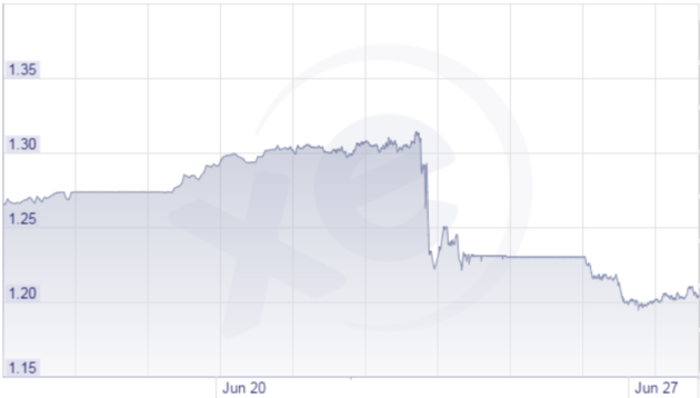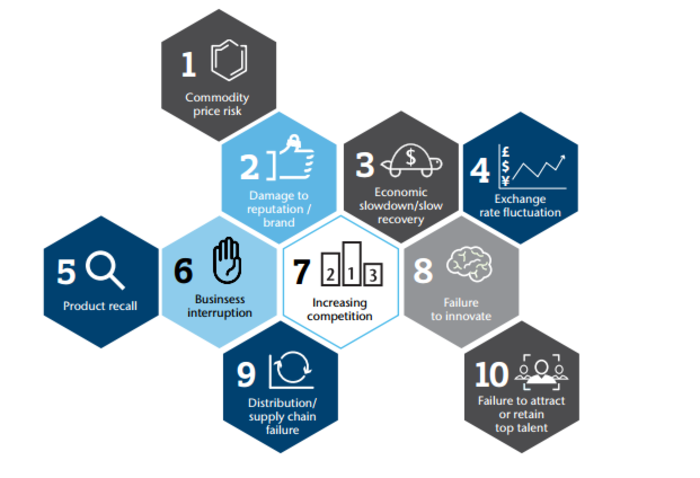Lots of Irish farmers aren't set up to deal with the collapse in the pound
The value of the currency has plunged since the Brexit vote, but few food producers have a backup plan.
MANY IRISH COMPANIES do not have plans in place to deal with a collapse in the pound such as the one that has followed in the wake of the historic Brexit vote.
An annual study into risks in the agribusiness sector carried out by insurance company Aon identified currency fluctuations as among the top-ten risks for the industry.
The poll of about 50 companies, with a combined turnover of €26 billion, found that more than half were worried about extreme exchange-rate movements, but just over two-fifths had some sort of plan in place to deal with the circumstance.
The study was carried out during the first three months of the year, before the UK’s vote to leave the EU. That referendum result sent the pound crashing about 10% against the euro in the space of less than a week.
The authors of the report noted that more even companies were likely to list currency swings as a concern in light of last week’s events.

Sliding sterling
As previously analysed by Fora, Ireland’s food and drink industry is likely to be one of the hardest hit in the wake of the Brexit vote due to the reliance of many local exporters on the UK market.
While the long-term implications of the vote are difficult to assess until it is known what type of deal the UK and the EU will negotiate, an immediate effect of the decision was that the value of the pound dived.
Two-fifths of all Irish food exports are exported to the UK, which means the slide in the value of sterling will make it comparatively more expensive for firms to sell into that market.
Top risk
However the number one-risk identified in the report, selected by 83% of respondents, was the huge volatility of commodity prices. Only half of the businesses surveyed had plans in place to cope with falling prices.
Dairy producers in particular have been struggling over the past year after EU milk quotas were scrapped. Production spiked following the policy change, however farmers complain they are now selling milk for less than it costs to produce with a supply glut ruling the market.
Participants in the study were also concerned about damage to their brand, an economic slowdown and having to deal with a possible product recall.
 The top ten risks identified in the study
The top ten risks identified in the study
Industry challenges
Aon food and agribusiness practice leader Ciara Jackson, the author of the report, said that last week’s Brexit result has the potential to “severely challenge” the industry.
“The UK’s importance as an export destination for Irish produce means that the collapse in the value of sterling could particularly hurt lower margin businesses where profits can quickly swing to losses,” she said.
“Prior to the vote, 58% of companies identified exchange rate volatility as a top-ten risk (and) I suspect after recent events that percentage will now be much higher.”
However, she added that the sector is “rapidly diversifying its export markets” and said that it has proven “extremely resilient in the face of past challenges”.
The study found that many businesses businesses use hedging strategies to minimise their vulnerability to changes in foreign currency or use some type of forward looking contract.






